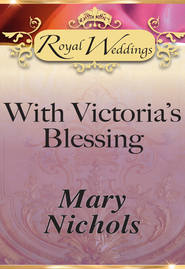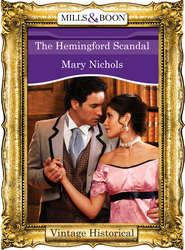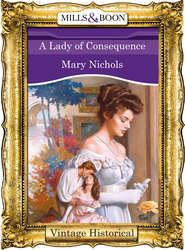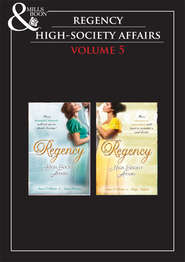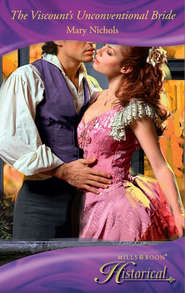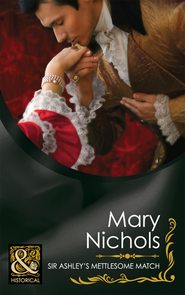По всем вопросам обращайтесь на: info@litportal.ru
(©) 2003-2024.
✖
The Incomparable Countess
Настройки чтения
Размер шрифта
Высота строк
Поля
Frances thanked her again and took her leave. A servant conducted her to the front door where another servant restored her pelisse and gloves to her and yet another carried her painting things out to her carriage and put them on the seat before letting down the step so that she could take her seat. John Harker, her groom and driver, set the beautifully matched horses to a steady trot, along Upper Brook Street, before turning into Duke Street and pulling up at the front door of Corringham House.
‘I shan’t need you any more today, John,’ she told the groom, as a footman came out of the tall mansion and took her case, canvas and easel from the carriage and carried it indoors.
‘Yes, my lady.’ He drove away to the mews and she followed the footman into the house, where she took off her hat, a scrap of straw with a small brim and a large feather, and handed it to Rose, her maid, before following the footman up to the studio. He leaned the easel against the wall and put the case on a table in the middle of the room.
‘Thank you, Creeley,’ she said. ‘Please tell Cook I will have my dinner in half an hour.’
‘Very well, my lady.’
He went about his business and she was alone, alone in a room so full of memories, it was almost unbearable. But she had learned to bear them, even sometimes to welcome them. Her painting had become her life. It was not that she needed the income from it; her husband, the late Earl of Corringham, had left her well provided for, but a streak of independence, which had always stood her in good stead, had made her want to do something for herself. And besides, it kept her from brooding.
She wandered round the room, looking at the pictures she had produced over the last seventeen years. Her early efforts did not have the finesse of her more recent work, but they had a raw emotion and a realism she had since learned to suppress; ladies did not paint distasteful pictures. The tasteful ones, the ones she had been commissioned to do, were gracing the drawing rooms and boudoirs of half the ton; the ones in this room were those she would not sell.
She stopped to look at a painting of the Duke of Loscoe—the Marquis of Risley as he was then, for his father had still been alive—painted when he was twenty-three and she was in love with him. It was three-quarter length and showed him as a pugilist: bare-chested and wearing tight breeches. It revealed his animal strength in every line, his self-confidence, his masculinity, his handsome broad forehead and dark, copper-coloured curls, one of which hung over his forehead, as it would have done in the ring. Sparring at Jackson’s boxing emporium had been a pastime of his. ‘It keeps me on my toes,’ he had told her between kisses.
It was a good likeness, but it was not a picture she could ever put on display; genteel ladies would be horrified that he had posed before a lady in such a state of undress and their husbands would wonder just what sort of lady she was to allow it. Besides, the dark eyes and expressive mouth said too much of the relationship between artist and subject.
Impatient with herself, she took the picture down and stood it on the floor with its face to the wall, but it left a mark where it had been hung and she began sorting through other pictures stacked around the room to find a replacement. Not all could be called portraits and not all were fashionable; there were subjects taken from nature: flowers, birds and animals, bright and lifelike and, in the case of a fox hunted to death, very bloody. And there were landscapes and street scenes too, and some of those from districts High Society ladies would never have dreamed of entering.
Taking her life in her hands, she had taken her sketch pad to some of the less salubrious parts of the capital and drawn what she saw: the miserable tenements, the squalor, the ragged children and their poverty-stricken parents, just as they were. Surprisingly no harm had come to her, possibly because she paid the people handsomely for the privilege of drawing them. Afterwards, at home in her studio, she had converted the sketches to paintings. She knew they were good, but hardly drawing-room pictures. One day she would exhibit them and prick the conscience of the haut monde with what was going on under their noses and which they chose to ignore.
While sorting through them, she came upon another of the Duke, a hurried sketch done on the day they had gone picnicking at Richmond, not long before that final parting. He had taken his coat off and was lying on the grass with his arms behind his head, watching her work, a dreamy smile on his face and a softness in his amber eyes which betokened his love for her. Or did it? She had never been sure.
‘Drat him!’ she said aloud and hurriedly picked up a portrait she had done of the Prince of Wales in that ridiculous uniform he had devised for his own regiment and hung it on the wall. Then she left the room and went to her bedchamber, where her maid was waiting for her.
She was helped out of her paint-stained gown and stood in her shift while Rose poured hot water from the ewer into a bowl. There was a full-length mirror beside the washstand and she found herself looking into it, wondering what the Duke would make of her if he could see her now. She could not describe her figure as sylph-like, but she was certainly not fat and her dark hair was still thick and black as a raven’s wing. Her violet eyes were said to be her best feature; Marcus always said they were speaking eyes. Did they still give her away or had she since learned how to veil her innermost thoughts and feelings under a cloak of urbanity?
‘What will you wear, my lady?’ Rose asked.
The choice was vast; her wardrobe was extensive and tastefully fashionable, though she did not go in for some of the extremes that were the latest mode. She would not, for instance, be seen dead in that dreadful turban of Lady Willoughby’s, nor the scant muslin that even the mature ladies of the haut monde considered the height of fashion.
‘The pink silk with the bands of green and mauve, I think.’
‘But that’s old, my lady. The last time you wore it, you said—’
‘Oh, I know, Rose, but it is comfortable and I am not going out tonight and shall be dining alone and perhaps later I will finish the portrait of Lady Willoughby. I do not want to spoil a good gown.’
It was unusual for her to be alone. She had many friends of both sexes, led a very full social life, was never short of invitations and entertained widely. Her guests came from a variety of backgrounds and had a wide range of interests, including politics, music, art and science, and she had the happy knack of making them all deal well together. Tonight, she was glad to be alone; it suited her mood.
Sitting over a light meal of chicken, ham and fresh vegetables bought in Covent Garden that morning, she reviewed her life. It had not been so bad after all, though when, at the age of seventeen, her hopes and dreams had been shattered by Marcus’s betrayal, she had thought it at an end. How could he? she had cried into her pillow night after night, how could he say he loved her and then marry someone else, just because his father told him to? She had accused him of having no backbone, of playing with her, leading her on with kisses and protestations of love which were as false and ephemeral as snow in summer. And she would certainly not entertain the idea of being his chère amie if that was what he had in mind.
She had told him she hated him, never wanted to see him again, and he had gone from her life to marry his Scottish heiress, whose dowry included a Highland castle. What had he wanted a castle for? He had been heir to a vast estate in Derbyshire, a London mansion, a house in Bath, as well as a hunting lodge in Leicestershire. It was all his now, of course, and he was one of the richest men in the kingdom. Not that she had ever considered his prospects; it was the man she had loved.
It had been her come-out year and she had wasted it sighing after a rake-shame. Most of the other young eligibles that year had found their partners and in any case could not be compared with the man she had lost. Her mother, who had spent a vast amount bringing her out, had been furious with her. ‘Money wasted,’ she had said. ‘You are far too particular, Fanny, and without reason too. Oh, I know you have looks, but what is that to the point when you have no fortune? I cannot afford to bring you to London again next year. It has to be this year or never.’
‘Mama, I cannot help it if no one has offered for me.’
‘Nor will they when you have allowed yourself to be monopolised by Risley. Talk of the ton that has been and mortifying enough without the added humiliation of going back to the country without the sniff of a betrothal.’
To please her mother Frances had accepted the Earl of Corringham. His wife had died the previous year, leaving him with a son of seven and a half and a daughter of six to bring up, and he was looking for a new mother for them. The wedding had taken place quietly just two weeks before Marcus Stanmore had married Margaret Connaught.
There had been no love, nor even any pretence of it, but she had been comfortable with him and had learned to please him and love his children, especially when it became apparent that she would have none of her own. He had been philosophical about that. ‘I have my heir,’ he had said. ‘And we deal well together, do we not? What do we want more brats for?’
She had been married ten years when a heart seizure had carried George off and since then she had made a secure life for herself. She did exactly as she pleased, went out and about, drove her carriage, rode in the park, attended concerts and the theatre, kept abreast of the times by reading newspapers and the latest books, and gambled in moderation but never more than she could afford to lose. She used the talents she had been given and taught young ladies to draw and paint, and was gratified when they did well. And, most important of all, she had her charitable work, the extent of which only John Harker and her banker were privy to. All in all it was a satisfying kind of life and she did not welcome anything that threatened to disturb it.
While George had been alive, she had spent most of her time at Twelvetrees, the family estate in Essex, and, on those rare occasions when she had visited the capital for a few days, she had not come across Marcus. He had rarely come to London, preferring to divide his time between his country estate and his Scottish castle. Since his wife’s death two years before, so rumour had it, he had been something of a recluse. And now he was in Town. Thank goodness she had more sense than to fall in a quake about that!
She finished her meal, then went up to her studio and completed the portrait of Lady Willoughby before retiring. She was going riding with Sir Percival Ponsonby the following morning and they planned to make an early start.
Percy was a lifelong bachelor who rubbed along doing nothing in particular, but managed to be an amusing and undemanding companion and, in spite of the ennui he affected, was also wise and discreet. They had long ago come to an amicable arrangement to be friends and to ignore the matchmaking tattlers who did not see why they should be allowed to enjoy their lives unencumbered when everyone knows that a man with no wife and a widow with a small fortune must surely be looking for partners.
The April morning was blustery but mild. The buds were showing on the chestnut trees and there were daffodils and gillyflowers nodding their heads in the gardens, though these would soon be replaced by the flowers of summer, the roses and delphiniums, and by then the Season would be at its height. Frances wore a blue grosgrain habit with silver frogging and had secured her riding hat with a spider-gauze scarf tied under her chin. According to Percy, she looked very fetching.
They had been riding for perhaps an hour when she spotted the man she had known as Marcus Stanmore, Marquis of Risley, driving a park phaeton down the carriageway. Sitting beside him was a young lady with gleaming copper curls and a proud carriage.
‘Bless me, if it ain’t Loscoe,’ Percy said, putting up his quizzing glass. ‘And looking quite the thing too. I ain’t seen him these many moons. And who’s the filly, I wonder?’
‘I believe it is his daughter,’ Frances murmured.
‘Daughter. My life, the years have flown. Wonder what he’s doing in Town?’
‘According to the latest on dit, looking for a second wife.’ In spite of herself, she was curious. Would he recognise her? After all, she was no longer the gauche girl of seventeen he had known. Nor was he the stripling of twenty-three he had been.
Although he was naturally heavier and his good looks had matured, the years had dealt very kindly with him. The faint lines around his eyes and mouth gave his face character which had not been there before. His jaw was stronger than she remembered it and jutted out a little belligerently as if he did not suffer fools gladly, but he was still excessively handsome.
Percy looked sideways at her. ‘Would you prefer to avoid him? It ain’t too late to turn off the ride.’
‘Goodness, no,’ she laughed. Too many summers had passed, too many winters following one upon the other, for her still to bear a grudge. ‘That would look too much like the cut direct. And I have no reason to cut him.’
‘Water under bridges, eh?’
‘Yes.’ They were almost abreast of the phaeton and she knew etiquette dictated it was up to her to acknowledge him first. She reined in and favoured him with one of her famous smiles, a smile which lit up her whole face and had most of the male population of London in thrall. ‘Your Grace.’ She gave him a small bow from the waist.
‘My lady.’ He pulled his phaeton to a stop and doffed his tall hat. His extraordinary hair was as thick and vibrant as ever, she noticed. She also noticed his smile did not seem to reach his amber eyes and his mouth had a slightly cynical twist, which she was sure had not been there when he was young. ‘How do you do?’
‘I do very well, thank you. You are acquainted with Sir Percival, are you not?’
‘Yes, indeed. Good day to you, Ponsonby.’
‘And you,’ Percy answered. ‘What brings you to the village? It must be years since you were here last.’
‘Indeed, yes.’ He turned back to Frances. ‘Countess, may I present my daughter, Lavinia? Lavinia, the Countess of Corringham.’ His tone was cool and impersonal; there was nothing to suggest he remembered that hot summer when they had been everything to each other. Everything or nothing? ‘And this is Sir Percival Ponsonby.’
‘Lady Lavinia, how nice to meet you,’ Frances said, as Percy bowed in the saddle. ‘I do hope you enjoy your visit to London.’
The only answer the girl managed was a mutter and a scowl which spoiled her prettiness and earned her a telling look from her father.
Frances was startled but, having acknowledged her, turned her attention to the Duke. ‘Do you stay long in town, your Grace?’






